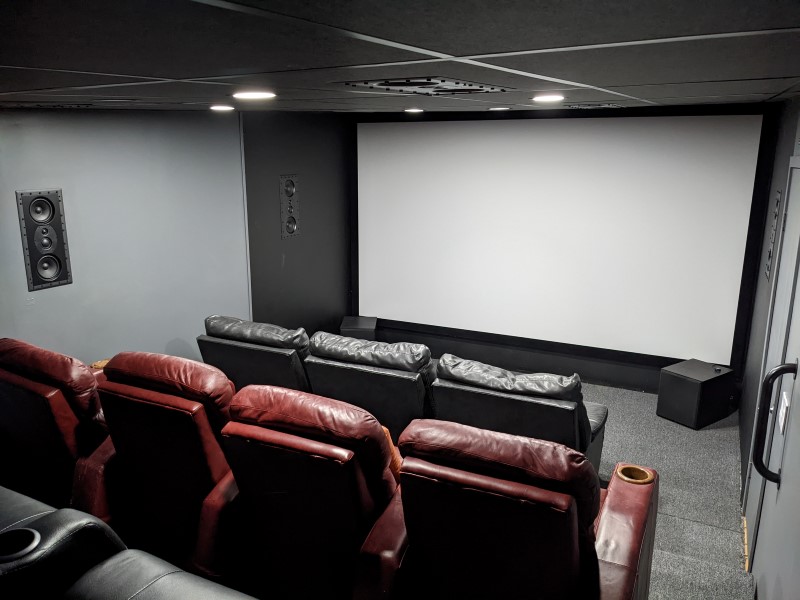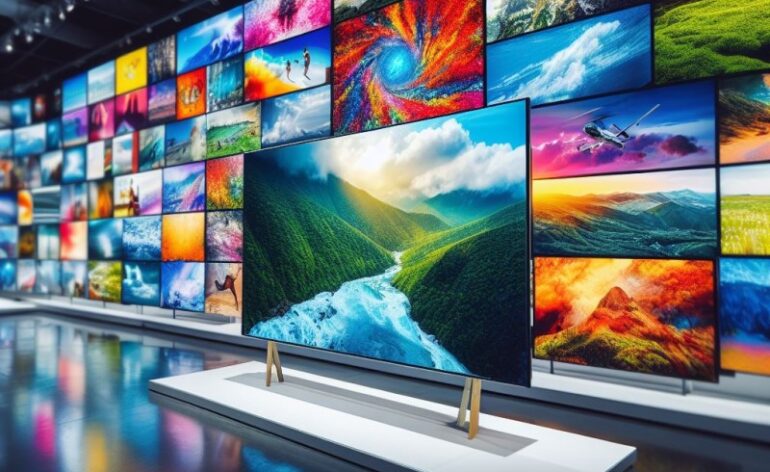What’s Most Important TV Size or Quality?
It’s the age-old debate – what’s most important when buying a TV, size or quality? For some people, it is size or nothing. They want the biggest TV they can get. For others, quality is king. They want the deepest blacks, all the gaming features, and the best HDR. So, what is most important? What should you focus on when you are shopping? Let’s discuss!
Only Shop for the Features You Need
Before you start shopping for anything, you need to identify the features you’ll actually use. If you aren’t a gamer, then you don’t need all the latest HDMI 2.1 features. Sure, HDMI 2.1 might support some features you’ll actually use in the future, but there is no guarantee that a TV you buy today will actually be capable of utilizing those features when they arrive. Shop for what you will use, not for some theoretical update.
Minimum Quality
There are people out there (you might be one of them) who think that those who care about video quality are somehow being overly picky. You’ve never really noticed the video quality of your TV and don’t think you’d notice the difference between a good TV and a bad one.
We assure you, that is not the case.
Some of those huge TVs that have unbelievably low prices are legitimately terrible. The motion is stuttery, the colors aren’t accurate, and the black levels aren’t actually black. You will notice that there is something wrong with your TV.

If you are going to shop for a TV, you need to have a minimum level of quality that you are willing to accept. Will you notice the difference between a great LCD and an OLED? Maybe not depending on your room and lighting environment. But you will notice a bad TV being legitimately bad.
To set that minimum quality level, you are probably going to have to rely on professional reviews. For TVs, we’d recommend using RTings.com.
Size Inevitably Is King
Once you’ve decided your minimum level of quality, size really is the most important. While you could argue that you won’t notice the differences between two fairly good TVs, you will definitely notice that one is smaller than the other. Getting a TV that is the correct size can give you that cinematic experience you were trying to achieve. A TV that is too small will make it hard to read text on the screen, difficult to understand what is happening, and generally sucks.
In short; once you’ve established a minimum quality, go for the TV that is the right size. When choosing between two TVs, pick the bigger one even if it gets slightly lower performance scores. You’ll notice the size far more than slight differences in color, HDR, or black levels most of the time.
What do you think? Is size the most important factor or would you buy a much smaller TV just to ensure you got the best performance? Let us know in the comments!



First of all: rtings doesn’t make good tv reviews. I’d say the best tv reviewer out there is Vincent Theo, who runs hdtvtest.com. Unfortunately, he rarely reviews anything but high quality TVs. You can find good reviews at AVforums (the British site) too, but again, mostly high end. A rule of thumb, though, is to choose OLED whenever you can. Past year models can be found at good prices. You will be rarely disappointed, even with the cheapest models. LCD is only OK at the high end and only if you need high brightness and don’t care too much about viewing angles.
Size is a matter of preference. It depends on the content you consume the most. For movies, think of where you like to seat on a cinema and use a good viewing distance calculator, like the one from hometheaterengineering. (Disregard any viewing distance calculator that uses visual acuity as a parameter. They’re BS.) Both THX and SMPTE recommendations are for sitting at the center of the theater. If you mostly watch non-cinematic TV programs, you want not so big a set. TV production is stuck on smallish screen sizes from the past. Sports are somewhat in the middle. Bigger is better is just bad advice.